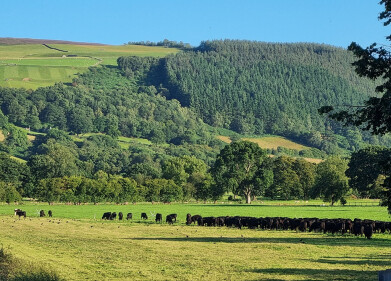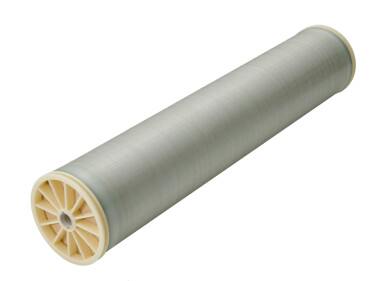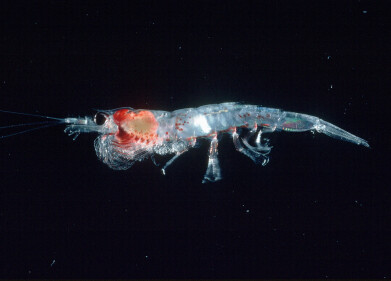Water/Wastewater
Irrigating Farmland with Treated Wastewater
Mar 10 2011
IFAT ENTSORGA 2012, the World´s Leading Trade Fair for Water, Sewage, Waste and Raw Materials Management, is expanding its portfolio:
For the next event, taking place from 7 to 11 May 2012 at the New Munich Trade Fair Centre, the subject of irrigation technology will be included in the nomenclature for the first time. Worldwide, as it becomes ever more important to conserve water resources, the re-use of wastewater is playing an increasingly significant role. In agricultural irrigation, treated wastewater is an excellent alternative, and one that saves valuable resources.
"In view of the large quantities of water needed for agricultural production of food, great potential is seen in the reuse of wastewater for irrigation purposes," says Prof. Dr.-Ing. Peter Cornel from the Wastewater Technology Department at the Technical University of Darmstadt. In arid and semi-arid regions, it is common practice. The International Waste Water Management Institute (IWMI, Sri Lanka) found three years ago that of the 53 cities in Latin America, the Middle East, Africa and Asia it investigated, around 80 percent were using part- or non-treated water in agriculture.
Example Jordan: The population here is rising fast, and water resources are becoming ever scarcer. Overuse of groundwater resources has already led to a drastic fall in the water table. A project funded by the KfW Entwicklungsbank uses treated municipal effluent from three treatment plants in the Irbid region for irrigation purposes. In addition it is planned to lay pipelines through into the northern Jordan valley, where the water will be further processed for use in agriculture. By substituting treated wastewater for fresh water in irrigation processes, every inhabitant of Jordan´s capital city Amman will have an additional 20 litres of drinking water available to them each day. The farmers benefit from the fertilising properties of the nitrogen and phosphorous content in the treated water. The German international project-development organisation Deutsche Gesellschaft für Internationale Zusammenarbeit (GIZ, Bonn) has already begun consultations in the central Jordan valley on adapting the use of fertilisers. Another advantage of the overall concept is that the substantial difference in altitude between the location of the treatment plants near Irbid and the Jordan valley is to be exploited by constructing a power station to utilising the transport of the treated effluent for generating electricity for up to 15,000 households.
Another example is Peru: At the end of 2009 SEDAPAL, the water resources agency for Lima, started up a treatment plant near the Peruvian capital to process effluent into water specifically for irrigating over 400 hectares of arable land. The concept and the components for the system were delivered by the international water and wastewater specialists ITT. This involves employing a sequence batch reactor (SBR) with tertiary filtration which reliably removes the parasite Helminth Ova, which is resistant to standard disinfectant technologies. The treated water produced by this facility meets the requirements for agricultural irrigation laid down by Peru’s government in 2008.
A third example is China: Here ttz Bremerhaven is currently developing a new irrigation technique for energy wood plantations, in cooperation with Alensys AG of Erkner, Germany, and Hydro-Air GmbH (Niedergörsdorf, Germany). In this BIOWARE project, sponsored by the German Ministry of Economics, municipal wastewater and ground water are mixed to produce a suitable nutrient solution. When this water is delivered via a controlled system of drip irrigation, savings can be made in terms of both cost and conventional fertilisers. In spring this year the prototype for this wastewater recycling system is being installed in Yangjiteng, a small town near Chengdu with around 20,000 inhabitants.
In addition to these centralised, large-scale treatment concepts, there is also the possibility of processing wastewater for irrigation decentrally, in much smaller units. In Indonesia for example, high water prices and the need to irrigate several parks prompted the operators of one hotel on the island of Sumatra to install a membrane bioreactor system in 2008. The technology for this, from Hans Huber AG of Berching (Germany), is housed in one of the lower floors of the hotel. Each day this plant delivers around 250 cubic metres of water for use in irrigating the landscaped gardens.
Events
Carrefour des Gestions Locales de L'eau
Jan 22 2025 Rennes, France
Jan 29 2025 Tokyo, Japan
Feb 05 2025 Nantes, France
Feb 16 2025 Kampala, Uganda
Feb 26 2025 Chennai, India




-as-feedstock.jpg)





